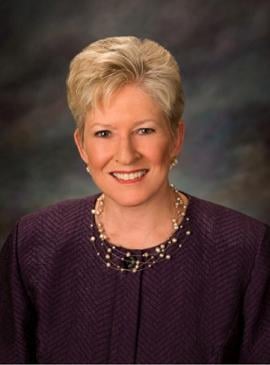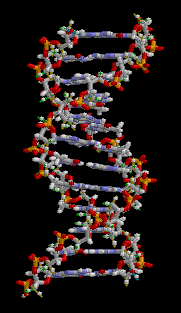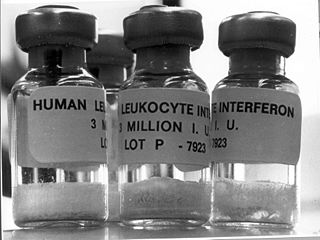 If Dr. Seuss were still writing his wonderous books and turned his attention to biotechnology today, we might see a title like Ah, the Things You Can Do With Algae! At the University of California San Diego a number of research institutions have joined together to form the San Diego Center for Algae Biotechnology (SD-CAB) where scientists are pursuing all sorts of innovative projects using the ubiquitous green matter that also happens to be a genetic model organism. Which means it is not only easy to grow, but it can do things that bacteria and even mammalian cells can't, like host a genetically engineered protein that targets cancer.
If Dr. Seuss were still writing his wonderous books and turned his attention to biotechnology today, we might see a title like Ah, the Things You Can Do With Algae! At the University of California San Diego a number of research institutions have joined together to form the San Diego Center for Algae Biotechnology (SD-CAB) where scientists are pursuing all sorts of innovative projects using the ubiquitous green matter that also happens to be a genetic model organism. Which means it is not only easy to grow, but it can do things that bacteria and even mammalian cells can't, like host a genetically engineered protein that targets cancer.
Recent Posts
Tags: CA, University of California San Diego, cancer research, cell biology, Southwest, California, 2012, biology research, UCSD, Biotechnology Vendor Showcase, San Diego Biotechnology
 Mount Sinai School of Medicine in New York City has just celebrated the opening of its Leon and Norma Hess Center for Science and Medicine in Harlem, with no fewer than 6 full floors (180,000sf) dedicated to laboratory research. The 2 buildings that make up the research facilities and the residential/clinical tower have been under construction for four years, and when we last reported on their progress, the opening had been projected into Spring of 2013. Clearly they've made up some time and are eager to be fully operational as soon as possible. In fact, in a news release, officials said that they had originally expected it to take 4-5 years from the opening to a point where they were fully staffed (with new recruits), but now they've shortened that time to 18-24 months.
Mount Sinai School of Medicine in New York City has just celebrated the opening of its Leon and Norma Hess Center for Science and Medicine in Harlem, with no fewer than 6 full floors (180,000sf) dedicated to laboratory research. The 2 buildings that make up the research facilities and the residential/clinical tower have been under construction for four years, and when we last reported on their progress, the opening had been projected into Spring of 2013. Clearly they've made up some time and are eager to be fully operational as soon as possible. In fact, in a news release, officials said that they had originally expected it to take 4-5 years from the opening to a point where they were fully staffed (with new recruits), but now they've shortened that time to 18-24 months.
Tags: Mount Sinai School of Medicine, Northeast, New research facilities, New York, 2012, MSSM, BioResearch Product Faire Event, NY, New York City, New YorkISMMS, City
 In an attempt to shore up both the reputation and functionality of the nations's largest state-funded cancer agency, officials at the Cancer Prevention and Research Institute of Texas (CPRIT) just announced the appointment of Dr. Margaret Kripke as the agency's new chief scientific officer. The embattled agency has faced accusations from many of its key scientists that irregularities and favoritism in the funding process have undermined their scientific credibility and put commercialization above research.
In an attempt to shore up both the reputation and functionality of the nations's largest state-funded cancer agency, officials at the Cancer Prevention and Research Institute of Texas (CPRIT) just announced the appointment of Dr. Margaret Kripke as the agency's new chief scientific officer. The embattled agency has faced accusations from many of its key scientists that irregularities and favoritism in the funding process have undermined their scientific credibility and put commercialization above research.
Tags: cancer research, women in science, Texas A&M University, Texas Medical Center, Texas, Southwest, 2012, College Station, BioResearch Product Faire Event, Funding, Houston
 Yesterday we looked at two biologically inspired engineering experiments out of the Wyss Institute in Boston. Today we're on the West Coast at the University of California Santa Barbara's Institute for Collaborative Biotechnologies (ICB) marvelling over another technology that takes its cue from the biological world. It's a microfluidics device designed to function much like the super-sensitive nose of a dog, and it's already being commercialized for use in bomb detection, though other applications could include bio/chemical detection in industrial and healthcare settings as well. Results of the research gauging bomb detection accuracy specifically were published recently in an article in the journal Analytical Chemistry.
Yesterday we looked at two biologically inspired engineering experiments out of the Wyss Institute in Boston. Today we're on the West Coast at the University of California Santa Barbara's Institute for Collaborative Biotechnologies (ICB) marvelling over another technology that takes its cue from the biological world. It's a microfluidics device designed to function much like the super-sensitive nose of a dog, and it's already being commercialized for use in bomb detection, though other applications could include bio/chemical detection in industrial and healthcare settings as well. Results of the research gauging bomb detection accuracy specifically were published recently in an article in the journal Analytical Chemistry.
Tags: CA, Lab-on-a-chip Technology, Southwest, California, 2012, University of California Santa Barbara, Biotechnology, Front Line event, UCSB, Santa Barbara
 By now we all know that DNA is an informational molecule encoding the genetic instructions used in the development and functioning of all known living organisms and many viruses (Wikipedia). But very recently, Harvard University bio engineers at the Wyss Institute have shown that deoxyribonucleic acid can also be used as a tool. Specifically, two teams have published eye-opening studies on using DNA creatively to:
By now we all know that DNA is an informational molecule encoding the genetic instructions used in the development and functioning of all known living organisms and many viruses (Wikipedia). But very recently, Harvard University bio engineers at the Wyss Institute have shown that deoxyribonucleic acid can also be used as a tool. Specifically, two teams have published eye-opening studies on using DNA creatively to:
Tags: Wyse Institute, synthetic biology, 2012, Massachusetts, bio research, Boston, BioResearch Product Faire Event, MA, Harvard, Harvard Medical School
 For both dairy and beef production, cows are an important part of the US economy and food supply. When they get sick, it's bad for business (and not too pleasant for the cow). The most common illness in cattle is Bovine Respiratory Disease (BRD), which accounts for losses of more than $690M annually in the US alone. To combat this threat to bovine health and productivity, the USDA has recently awarded a $9M 5-year grant to researchers at Texas A&M University's College of Veterinary Medicine and Biomedical Sciences, in collaboration with colleagues at the University of Missouri, to study genetic selection for breeding more disease-resitant stock. A second $5M grant will go towards research into feed efficiency, again with the aim of breeding heartier, healthier, and more profitable animals.
For both dairy and beef production, cows are an important part of the US economy and food supply. When they get sick, it's bad for business (and not too pleasant for the cow). The most common illness in cattle is Bovine Respiratory Disease (BRD), which accounts for losses of more than $690M annually in the US alone. To combat this threat to bovine health and productivity, the USDA has recently awarded a $9M 5-year grant to researchers at Texas A&M University's College of Veterinary Medicine and Biomedical Sciences, in collaboration with colleagues at the University of Missouri, to study genetic selection for breeding more disease-resitant stock. A second $5M grant will go towards research into feed efficiency, again with the aim of breeding heartier, healthier, and more profitable animals.
Tags: Texas A&M University, Texas, veterinary medicine, Southwest, 2012, animal science, College Station, TAMU, BioResearch Product Faire Event, Texas A&M Research, Genomics, Genetics, Texas A&M

Researchers in the St. Giles Laboratory of Human Genetics of Infectious Diseases at Rockefeller University have recently published the results of a study that demonstrates how organs like the brain have their own defense systems which, when disrupted, can permit disease despite a healthy white blood cell count. The key is the production of interferon, which are proteins triggered by a receptor called TLR3 that send up the alarm to fight infection (by interfering with the pathogen's reproduction). When that TLR3 receptor is faulty on a neuron or other brain cell, no interferon is produced and the patient can suffer a disease of the brain even though that same pathogen is being combatted effectively in other parts of the body. We now know there seem to be localized systems of immune response within specific organs, and that interferon therapy may help patients with rare localized diseases.
Tags: Rockefeller University, biomedical research, Stem cell research, New York, 2012, Immune System, brain research, BioResearch Product Faire Event, NY, New York City
Last year when we reported on the extraordinary $150 Million gift by the Simons Foundation to Stony Brook University (read the blog), we noted that part of the gift was earmarked for new research faculty hires as part of the SUNY 2020 Plan. Indeed the goal is to hire as many as 250 new researchers into the SUNY System by the year 2020--100 at the Stony Brook campus. The first 25 of those positions will be in 5 "clusters," which were recently selected from a larger pool of program proposals in the first round of the University's interdisciplinary faculty cluster hiring initiative. Rather than approving individual faculty members, or even allotting funds to individual departments, SBU is looking at using this unprecedented opportunity to strengthen its interdisciplinary programs through this clustered hiring of faculty who will work within a department but also as part of a larger team.
Tags: New York, 2012, Stony Brook University, BioResearch Product Faire Event, Funding, NY, Southwest Region, National Lab, Stoneybrook, new research faculty
Most of us ate turkey with friends and family in a warm house yesterday. Today many are shopping. Meanwhile on Long Island, Staten Island and the Jersey Shore, volunteer organizations are still hard at work cleaning up the mess from Sandy and helping people move their lives forward. Instead of Thanksgiving at home with family, military veterans volunteering with Team Rubicon probably ate a donated meal with fellow workers or community members. Maybe they got to rest their muscles for a day.
Tags: Northeast, New York, 2012, BioResearch Product Faire Event, Front Line event, New York City, Trade show, Biotechnology Vendor Showcase, Sales
The University of California system has five biomedical campuses currently: San Francisco, San Diego, Los Angeles, Irvine, and Davis/Sacramento. While each campus maintains a certain autonomy, the advantage to being part of a unified, statewide system is especially apparent when it comes to sharing resources such as biospecimens. In research studies that require data from large numbers of human blood or tissue samples, for instance, scientists rely on biobanks: an organized collection of human biological material and associated information stored for one or more research purposes.
Tags: CA, University of California Los Angeles, University of California San Francisco, Bioscience research, Bioresearch, Translational Research, Southwest, California, University of California, 2012, Los Angeles, San Diego, San Francisco, BioResearch Product Faire Event, Biotechnology Vendor Showcase

